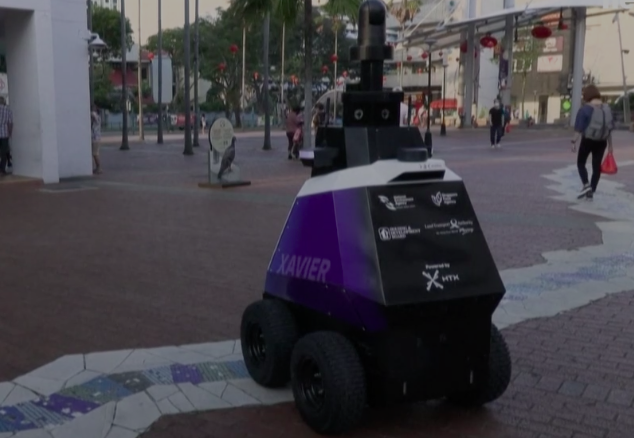The robot dystopian future is happening. Slowly, but right in front or our eyes, somewhere between S3E1 – “Nosedive”— and S4E2 – “Arkangel” — is where we currently set our tale.
In Singapore, robots called “Xavier” are being released into public spaces aimed at establishing social currency. The robots have seven cameras are designed to detect “undesirable social behavior.” You know things that aren’t really a crime but may not be “for the greater good” — like if you incorrectly park your bike, if you smoke, or if social distancing is not being followed, for specific examples.
Great. It’s basically Nosedive.
The episode, Nosedive, is more focused on social media, where people can use eye implants and mobile devices to rate their online and in-person interactions on a scale from one to five stars.
As the episode unfolds we see Lacie, a young woman with a rating of 4.2 try to improve her socioeconomic status and reach a 4.5. However, through a series of perceived missteps on the way to a wedding, her score craters, which prompts her friend to cancel her invitation.
From there, well it is a downward spiral. Lacie destroys her friend’s wedding, her rating drops to zero, and she is arrested.
Much of the tech described in Nosedive is already very real (it is simply using social media, smart phones and ratings), and, frankly the social credit is not too dissimilar to China’s social rating system.
What Singapore is doing is elevating it own super restrictive country.
The island plays host to 5.5 million residents and has already put into place some 90,000 police cameras – a number set to double by 2030 — making the country already have a distinct Person of Interest vibe as facial recognition devices are installed on most every lamppost, to help authorities pick out faces in a crowd.
Digital rights activist Lee Yi Ting told EuroNews.next that the devices are the latest way humans are being watched.
“It all contributes to the sense people… need to watch what they say and what they do in Singapore to a far greater extent than they would in other countries,” she said.
“It’s (the robot) dystopian because of the extent to which we are visibly surveilled. But I think that what’s more dystopian for me is that it is normalised and that people are not responding much to this at all”.
“It reminds me of Robocop,” Frannie Teo, a 34-year-old research assistant, told the news organization. “It brings to mind a dystopian world of robots… I’m just a bit hesitant about that kind of concept.”
With social media already blurring out images that it finds may be distressing to people — like Arkangel — and this expanded use of technology, it is only a matter of time before Black Mirror is increasingly prophetic.





